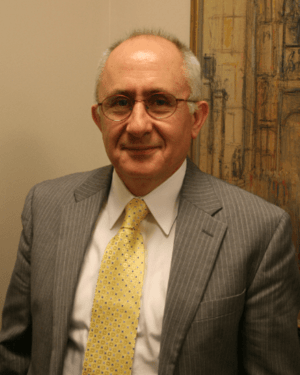Taner Akçam facts for kids
Quick facts for kids
Taner Akçam
|
|
|---|---|

Akçam in Toronto, 2013
|
|
| Born | 1953 (age 73) Ölçek, Ardahan Province, Turkey
|
| Nationality | German |
| Alma mater | Middle East Technical University |
| Occupation | Historian |
| Known for | Discussion of Armenian genocide, 1977 imprisonment |
Altuğ Taner Akçam (born in 1953) is a Turkish-German historian and sociologist. He is known for his important work on the Armenian genocide. He was one of the first Turkish scholars to openly discuss this historical event.
Akçam has written several books about the Armenian genocide. These include A Shameful Act (1999) and Killing Orders (2018). Experts see him as a leading authority on this topic. He believes it's important for Armenian and Turkish people to understand each other's views. He hopes this can help create a shared space for learning and understanding.
Early Life and Studies
Akçam was born in Ölçek village, near Ardahan, Turkey. His family is of Turkish Meskhetian origin. He grew up in a family that was not very religious.
He studied economics at the Middle East Technical University in Ankara, Turkey. He graduated from there in 1976. During his time at university, he was involved in student activities. He joined student protests and helped create a student journal. This journal focused on the treatment of Kurds in Turkey.
In 1977, he was sentenced to prison for his work on the journal. Amnesty International recognized him as a prisoner of conscience. This means they believed he was jailed for his beliefs, not for a crime. After about a year, he escaped from prison. In 1978, he moved to West Germany and received political asylum. He lived there until he earned his doctorate degree in 1995.
Academic Career
In 1988, Akçam began working as a researcher at the Hamburg Institute for Social Research. He started studying the history of Armenians after meeting a German librarian. In 1991, he helped organize a workshop about the Ottoman Military Tribunal. This tribunal looked into crimes related to the Armenian genocide.
He earned his PhD from Leibniz University Hannover. His research focused on Turkish nationalism and the Armenian genocide. Akçam later became a visiting professor at the University of Minnesota in the United States. He then joined Clark University's Strassler Family Center for Holocaust and Genocide Studies.
In 2007, a journalist named Hrant Dink was killed in Istanbul. Akçam attended Dink's funeral. He continued his important historical research despite challenges. In 2008, some people questioned his appointment at Clark University. However, the director of the Strassler Center, Deborah Dwork, stated that they hire the best scholars.
In 2020, French President Emmanuel Macron honored Akçam with a special medal. This medal recognized his courage in speaking out about the Armenian genocide.
Challenges and Freedom of Speech
Taner Akçam has faced some challenges because of his historical research. In 2007, he was investigated in Turkey for a newspaper column. In the column, he supported a journalist who used the term "genocide." An Istanbul court later decided not to pursue charges against Akçam.
He also faced difficulties when incorrect information about him appeared online. For example, in 2007, he was briefly held at an airport in Canada. This happened because of wrong details about him on Wikipedia. He also faced similar issues at the US border.
In 2011, Akçam won a case in the European Court of Human Rights. The court ruled that certain Turkish laws violated freedom of expression. This was an important decision for people who want to speak freely about historical events.
See also
 In Spanish: Taner Akçam para niños
In Spanish: Taner Akçam para niños

